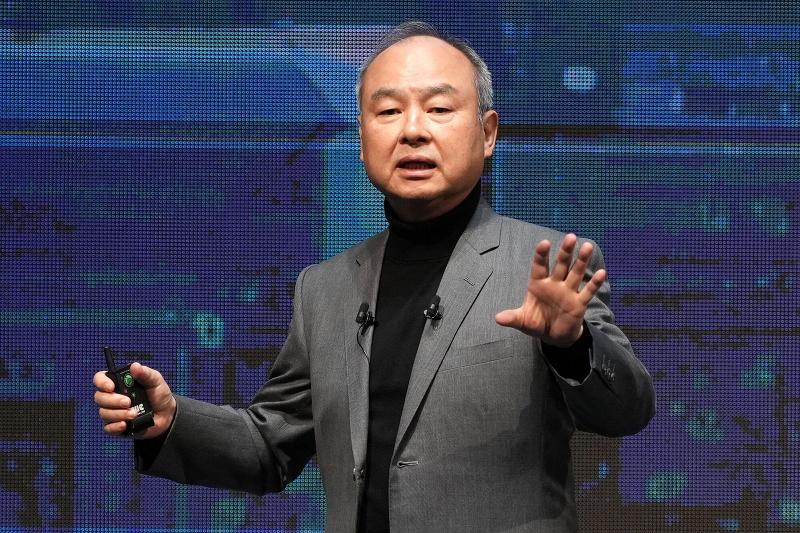SoftBank CEO Predicts Artificial General Intelligence within 10 Years
SoftBank CEO, Masayoshi Son, believes that artificial general intelligence (AGI) will exceed human intelligence within the next decade. In a recent conference, Son highlighted the potential of AGI and its transformative impact on business and society. This article explores his predictions and the implications of AGI.
AGI and its Potential
Explore the potential of Artificial General Intelligence (AGI)
Artificial General Intelligence (AGI) refers to the development of AI that surpasses human intelligence in nearly all areas. SoftBank CEO, Masayoshi Son, believes AGI will become a reality within the next decade. This has significant implications for various fields, including healthcare, finance, and transportation.
Imagine a world where AI is not limited to performing specific tasks but performs at a level on par or even exceeding human capabilities. The potential benefits of AGI are immense, ranging from enhanced problem-solving to more efficient decision-making processes in companies and organizations across industries.
Rapid Progress in Generative AI
Discover the rapid progress in Generative AI
Generative AI technology is progressing rapidly, with some aspects already surpassing human intelligence. This form of AI focuses on creating new and original content, such as art, music, and text.
Consider the advancements in deep learning algorithms that generate highly realistic images and videos, or the natural language processing models that contribute to the development of automated content generation. These advancements are pushing the boundaries of what is considered human-like creativity.
Challenges and Ethical Considerations
Delve into the challenges and ethical considerations surrounding AGI
While AGI promises a host of benefits, it also raises numerous challenges and ethical considerations. One such concern is the potential impact on the job market, as AGI has the ability to automate tasks traditionally performed by humans.
Impact on Employment
If AGI reaches the level of human intelligence, it could lead to significant job displacement and industries undergoing major transformations. It is vital for industries and individuals to adapt and navigate this changing landscape by acquiring new skills and finding ways to collaborate with AI rather than being replaced by it.
Ethical Implications
AGI also poses ethical dilemmas regarding privacy, bias, and accountability. Ensuring that AGI aligns with societal values and satisfies ethical standards is crucial. AI systems must prioritize fairness, transparency, and maintain privacy rights to avoid creating oppressive systems or perpetuating existing inequalities.
Looking Ahead: Artificial Super Intelligence
Examine the idea of Artificial Super Intelligence (ASI)
Aside from AGI, Masayoshi Son introduced the concept of Artificial Super Intelligence (ASI), projected to surpass human intelligence by a factor of 10,000 within 20 years. ASI denotes AI capable of outperforming humans in almost all cognitive tasks.
Son's prediction highlights an exciting future where AI reaches new frontiers, amplifying human intellectual abilities beyond imagination. However, achieving ASI entails critical attention to the societal implications and necessary precautionary measures to ensure its responsible development.
Japanese Companies and the AI Revolution
The role of Japanese companies in embracing AI
Masayoshi Son emphasizes the importance of Japanese companies awakening to the potential of AI after lagging behind in the internet age. With the rise of AGI and AI revolution, companies must be proactive in adopting and integrating AI technologies to remain competitive in a rapidly changing world.
Chip Designer Arm
Son also emphasizes the significance of chip designer Arm in the AI revolution. As AI becomes more prevalent in various industries, energy-efficient designs, such as those offered by Arm, will be increasingly sought after to power artificial intelligence systems.
Ultimately, adopting AI technologies within Japanese companies can drive innovation, improve operational efficiency, and contribute to economic growth. The time to fully embrace the potential of AI is now.
Conclusion
In conclusion, SoftBank CEO Masayoshi Son envisions the realization of Artificial General Intelligence (AGI) within the next 10 years, surpassing human intelligence in various domains. Son's predictions highlight the potential for AGI to transform businesses and society.
While AGI presents immense possibilities and benefits, we must also address the challenges it entails. From the impact on employment to ethical considerations, there is a need for proactive measures to ensure AGI aligns with societal values and respects ethical standards.
Japanese companies are urged to embrace AI and harness its full potential. Chip designer Arm, in particular, is recognized as a key player in the AI revolution, offering energy-efficient designs that power artificial intelligence systems.
The future of AI is exciting, with Masayoshi Son also introducing the concept of Artificial Super Intelligence (ASI), projected to surpass human intelligence by a factor of 10,000 within the next two decades. However, responsible development and ethical considerations remain essential in our journey towards the AI revolution.
As we step into the era of AGI and beyond, it is vital for businesses, individuals, and society to adapt, collaborate, and ensure AI benefits humanity as a whole.
FQA :
Are AGI and ASI the same?
No, AGI (Artificial General Intelligence) refers to AI that surpasses human intelligence in almost all areas. ASI (Artificial Super Intelligence), on the other hand, surpasses human intelligence by a factor of 10,000 and excels in cognitive tasks.
What are the real-world implications of AGI?
The realization of AGI has the potential to revolutionize various industries, such as healthcare, finance, and transportation. It can enhance problem-solving, decision-making processes, and automate tasks traditionally performed by humans.
How can AI ethics be ensured with the rise of AGI?
Ensuring AI ethics requires prioritizing fairness, transparency, and privacy. Developers and policymakers must establish guidelines and regulations to address bias, accountability, and potential societal impact while embracing disruptive advancements in AI technology.

